Chronic Kidney disease- the Risk Factors and Treatment
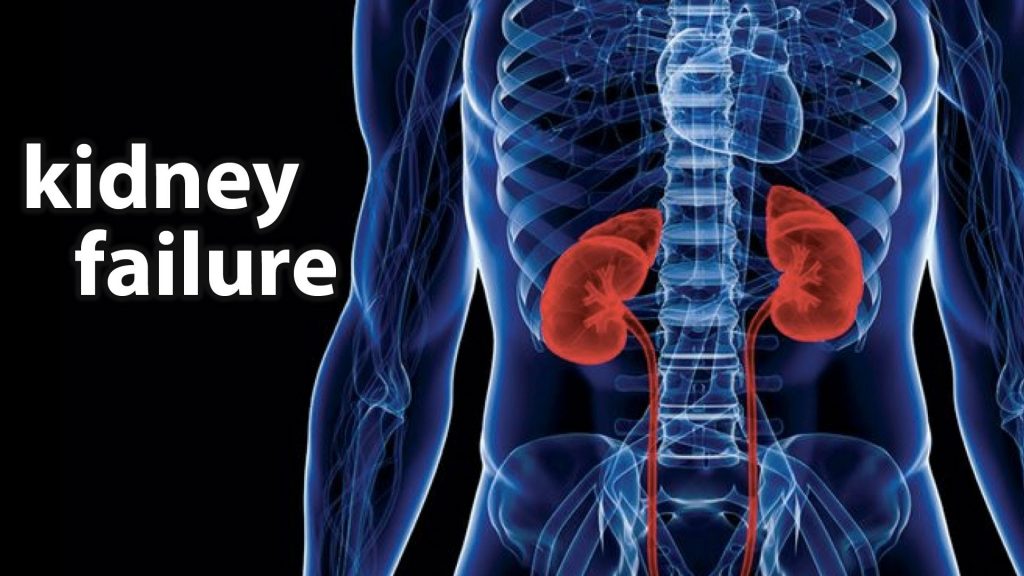
Chronic kidney disease commonly known as chronic renal failure, this condition entails a slow decline in kidney function. Wastes and extra fluid are removed from your blood by your kidneys and then passed through your urine. Your body may accumulate hazardous amounts of fluid, electrolytes, and wastes if you have advanced chronic renal disease.
You may not have many signs or symptoms when chronic kidney disease is first developing. It’s possible that kidney illness goes unnoticed until it’s already advanced.
The goal of chronic renal disease treatment is to slow the development of kidney damage, usually by addressing the underlying cause. However, even stopping the cause of kidney disease could not stop the damage from getting worse. End-stage renal failure brought on by chronic kidney disease can be lethal without artificial filtering (dialysis) or a a kidney transplant.
The Facts
There are 37 million adults in the US, or 15% of the population, who have CKD, according to reports. Up to 90% of persons with CKD are unaware of their condition. Nearly 25% of persons with severe CKD are unaware of their condition.
As of current estimates, people with CKD are more likely to be over 65 (38%) than between 45 and 64 (12%) or between 18 and 44 (6%). Women (14%) have CKD at a somewhat higher rate than males (12%).
Compared to non-Hispanic White adults (13%) and non-Hispanic Asian adults (13%), non-Hispanic Black adults (16%) have a higher prevalence of CKD. Approximately 14% of adult Hispanics have CKD.
Function of Kidney
Two kidneys, each about the size of a fist and situated on either side of the spine near the waist and located right below the rib cage, are present in healthy individuals. The principal function of the kidneys is to assist the body in cleansing, by eliminating waste materials.
Extra fluids, digestive system waste, sodium, salt, other electrolytes, and several other compounds found in the blood are among the waste materials that the kidneys filter. The kidneys assist in controlling blood pressure, eliminating medications or toxins, regulating hormones, and maintaining a strong skeletal system in addition to removing waste from the body through urine (strong bones).
As a result, kidney failure can be a very dangerous condition that necessitates intensive treatment, such as dialysis sessions, to perform the filtering function that the kidneys are no longer able to do.
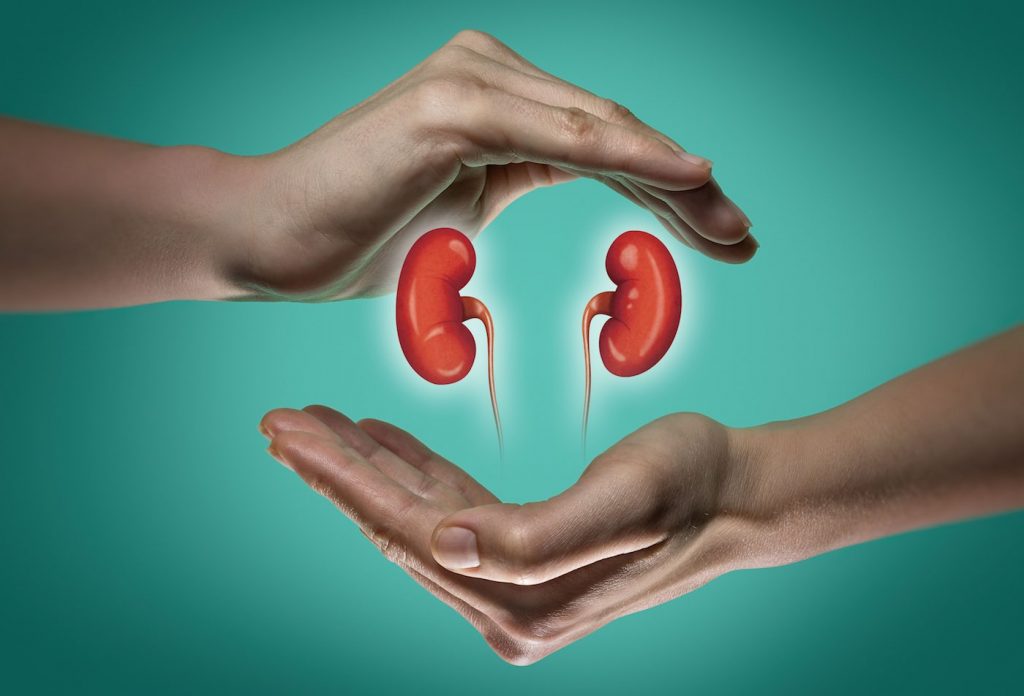
Kidney failure symptoms include a buildup of waste products and fluids, nausea (feeling sick to your stomach), mental confusion, and changes in blood pressure. A history of diabetes, high blood pressure, eating a poor diet, and having high levels of inflammation are all risk factors for kidney failure.
You can reduce your risk of developing kidney issues by keeping a healthy weight, ingesting sufficient electrolytes from whole foods (particularly potassium and calcium), and avoiding exposure to specific poisons or chemicals.
Now let’s look into and understand what is kidney failure
When the kidneys cannot maintain a person’s life, renal failure occurs. Patients whose kidneys abruptly stop working as they typically should are commonly referred to as having an acute kidney injury (also known as acute renal kidney failure).
According to the definition, this is the “sudden loss of the kidneys’ capacity to eliminate wastes, concentrate urine, preserve electrolytes, and maintain fluid balance.”
There are methods to assist manage the symptoms brought on by failing kidneys and to keep a person as healthy as possible, but there is no permanent cure for renal failure.
Several types of continuous therapies are used to clean the blood, stop dehydration or fluid retention/swelling, eliminate waste materials from the digestive tract, and finally replace the kidneys when the kidneys are badly damaged or “fail.” Hemodialysis and peritoneal dialysis are frequently the go-to treatments for renal failure.
When a total kidney transplant is a potential option, it may occasionally be preferred by some patients with kidney failure or required for certain individuals with kidney failure.
Acute kidney failure is a highly serious condition, so individuals with it typically work with a team of medical specialists to manage their overall health, monitor their symptoms, and receive continuous (sometimes lifelong) treatments.
A patient’s treatment team typically consists of nephrologists, or doctors who specialise in kidneys, nurses who perform dialysis treatments several times per week on average, a dietician to ensure the patient is getting enough essential nutrients from their diet, and, on occasion, technicians or social workers to assist with other aspects of quality of life.
Kidney failure signs and symptoms
Kidney failure symptoms are extremely harmful and frequently even fatal since the kidneys are required to maintain the right ratios of water, salt, and other minerals (known as electrolytes) in the blood.
Since the underlying causes of kidney failure can manifest as a variety of symptoms, it is not always clear to patients that kidney damage is a factor in their health issues. Some individuals with damaged kidneys experience no symptoms at all, much alone any noticeable ones. Only when the kidneys “die” abruptly does an issue become urgent.
Typical signs of kidney failure include:
Kidney discomfort, commonly referred to as “flank pain,” feels like throbbing or tenderness beneath the ribs or in the back or abdomen, you may urinate less frequently or perhaps not at all. However, frequent urination, occasionally accompanied by blood or other colour changes, may be a warning sign of renal disease.
In some cases, swelling and fluid retention are brought on by an electrolyte imbalance, particularly in the lower extremities such as the legs, ankles, or feet. Additionally, the face and eyes may look bloated and puffy. Nausea, vomiting, loss of appetite, indigestion, and elevated blood pressure could be experienced.
Dehydration and fluctuating electrolyte levels are the main causes of cognitive and emotional disturbances. Confusion, difficulty falling asleep, anxiety, exhaustion, difficulty concentrating, weakness, and brain fog are a few of them.

Although renal failure is a serious condition, not everyone who has it needs to be put on dialysis permanently or is necessarily in danger of passing away. It may be possible to lead a satisfying life even with severely damaged or failed kidneys, depending on one’s overall health, age, and the number of risk factors they are exposed to.
Unfortunately, there are situations when treating the underlying condition producing the patient’s symptoms will not be enough to treat serious kidney injury. A small minority of patients with chronic renal disease and permanent kidney impairment require continuing dialysis treatments for the rest of their lives, which frequently reduces the life expectancy of older individuals. The probability of mortality for individuals with acute renal failure who end up in the critical care unit is reportedly between 50 and 80 per cent.
Risk Factors and Causes for Kidney Failure
The kidneys can stop working for a number of reasons, including excessive blood loss, dehydration (which alters electrolyte levels), adverse drug/toxin interactions, or a blockage forming in the channels leading to and from the kidneys.
Kidney failure is predisposed by the following factors:
- Having a history of heart disease, diabetes, anaemia, excessive blood pressure, or heart failure. All of these things may reduce blood flow to the kidneys and increase inflammation.
- Sepsis, an infection that slows down blood reaching the kidneys, chronic renal disease, kidney stones (which are very frequent), or any other type of kidney injury or disease if left untreated.
- Eating poorly or becoming really overweight or obese, A poor diet can have a number of detrimental impacts, including changes in blood pressure, vitamin shortages, increased inflammation, and electrolyte imbalances.
- Being a senior citizen. Your risk for numerous kidney issues rises as you age.
- Having a history of liver illness, liver damage, or an enlarged prostate. This has an impact on how the body eliminates waste and deals with pollutants, medications, hormones, and/or chemicals.
- Enduring a traumatic event or renal injury that results in unexpected blood loss.
- The low immune response is brought on by another condition, such as a virus that alters electrolyte levels Immunity can also be lowered by extreme mental stress, recurring infections, or exhaustion.
- Having undergone surgery or an organ or bone marrow transplant while receiving care in a hospital or intensive care unit.
- Using prescription DRUGS, such as antibiotics, pain relievers, blood pressure meds, or ACE inhibitors, may occasionally cause kidney issues
Underlying Cause for kidney failure
The prevalence of the disorders listed above is significantly increased in patients with chronic renal disease and a high risk of kidney failure, particularly cardiac issues and anemia. For instance, cardiovascular disease mortality rates are 10- to 100-fold higher among dialysis patients than among healthy people of the same age, and the prevalence of renal disease-associated anemia is often 50%.
When kidney failure patients present to a hospital with abrupt symptoms, this is where their diagnoses are made. A patient’s likelihood of dying from acute renal failure increases from 50% to 80% if they require intensive care.
The current major worldwide health issue of chronic renal disease is acknowledged as a substantial risk factor for kidney failure. It is estimated that 13% of American adults have renal disease, and this percentage will likely increase as the country’s old population grows.
Renal failure, which is required when a patient has just 10% to 15% of normal kidney function left, can be treated with dialysis as one alternative.
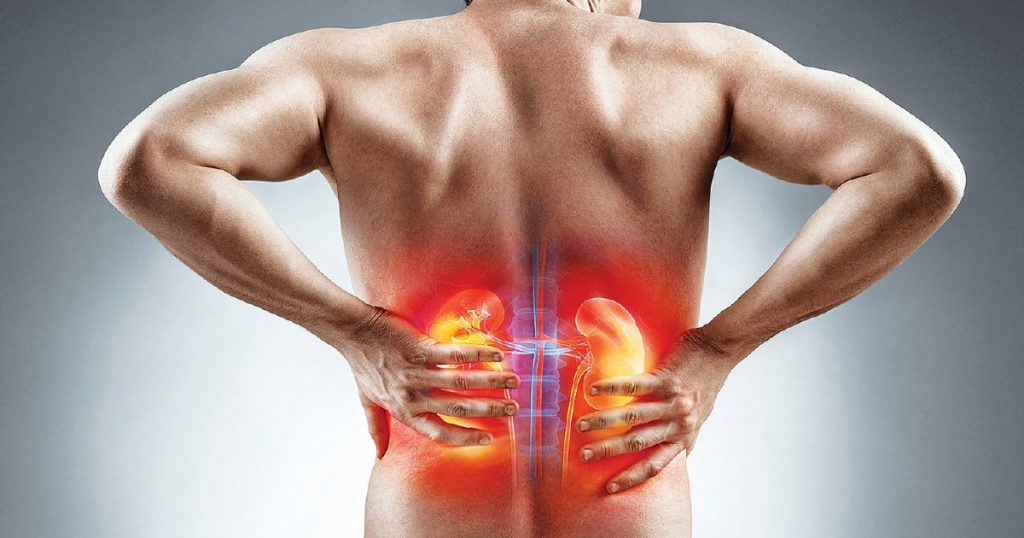
Treatment Options for Kidney Failure Traditionally
Based on your symptoms, medical history, and risk factors, your doctor may believe you have damaged kidneys or renal failure; nevertheless, a diagnosis is only confirmed by tests like blood tests and urine sample tests. Additionally, ultrasounds are also required to check the kidneys and digestive organs for indicators of edema and inflammation. Ultimately, testing an individual’s electrolyte levels—particularly those of sodium/salt, potassium, and calcium—allows medical professionals to determine whether they are suffering from renal failure.
The way that kidney disease or failed kidneys are managed depends on the severity of the disease. Kidney failure is often treated in a number of ways when a diagnosis has been made:
- Alleviating dehydration and restoring electrolyte balance. To rehydrate patients, intravenous fluids may occasionally be administered. Diuretics may also be used if fluid retention and edema are a concern.
- Changing any drugs that might be contributing to the issue
- Removing the obstruction in the urinary system will alleviate symptoms if it is preventing the patient from urinating.
- Treating any infection with symptoms, including sepsis or an infection affecting other digestive organs
- If required, begin a dialysis program under medical supervision.
- Possibly recommending drugs to regulate sodium, potassium, calcium, or glucose levels. The medications Kayexalate and Kionex prevent the buildup of excessive potassium levels in your blood.
Natural remedies and prevention for kidney disease, damage, and failure
1. Take Part in a Kidney-Healing Diet
Protein, water, salt, potassium, and phosphorus metabolism are all altered by kidney illness, and renal failure further complicates things. For the best results in controlling kidney disease or aiding someone with kidney failure, a balanced diet is essential.
Many renal failure patients seek the assistance of a dietician to assess their present eating patterns, nutrient levels, and demands in order to develop a treatment plan. This is due to the fact that there is now convincing evidence that poor pre-dialysis nutritional status raises patient morbidity and mortality even after the start of renal treatments.
A bad diet stresses weak or damaged kidneys and is a factor in a number of issues, including anemia, altered cholesterol levels, heart disease, and problems with bone metabolism.
The diet that will benefit you the most will depend on how well your kidneys are doing right now. Generally speaking, you should eat unprocessed, nutrient-dense foods, such as those high in antioxidants and foods rich in electrolytes.
Anyone with kidney stone symptoms should employ the following type of kidney cleansing diet:
Cranberries, blueberries, celery, burdock, leafy greens, freshly squeezed vegetable juice, beets, cherries, sea vegetables like seaweed, spinach, avocado, bananas, and citrus fruits like lemon are specific foods to concentrate on.
Dehydration must also be avoided because failing to consume enough fluids can increase your risk of developing renal problems (especially if you exercise a lot, live in a hot climate, drink diuretic beverages and sweat a lot). Getting adequate water and other hydrating beverages, such as herbal tea, sparkling water, or water with fruit infusions, should become a daily practice.
Monitor electrolyte intake:
Anyone with renal issues should closely monitor and limit their intake of particular electrolytes, such as sodium, potassium, and phosphorus.
Delete some items from your list

Depending on your current nutritional levels, your doctor may advise avoiding some meals, particularly those like dairy, processed meats, alcohol, caffeine, or too much protein.
Foods high in oxalic acid for example spinach, rhubarb, tomatoes, collards, eggplant, beets, celery, summer squash, sweet potatoes, peanuts, almonds, blueberries, blackberries, strawberries, parsley and cocoa, are equally harmful and should be avoided.
Focus on eating whole foods
Focus on eating whole foods like apples, cabbage, green beans, grapes, and strawberries if you want to keep an eye on your potassium consumption.
Avoid packaged foods
By avoiding packaged foods, frozen meals, canned soups, fried foods, fast food, and processed meats or cheeses, you can lower your intake of high-sodium foods (salt).
You can lower your phosphorus intake by consuming fewer dairy products (milk), legumes or beans, and nuts (especially peanuts).
2. Talk to your doctor about your medications.
If certain drugs or even vitamin supplements are the roots of your kidney issues, you may need to stop using them entirely. Since these medications are metabolized differently once the kidneys stop functioning normally. You can discuss the potential need to adjust your blood pressure, cholesterol, painkiller, calcium, or other prescriptions with your doctor.
Additionally, it’s advised that you use as little alcohol, tobacco, and over-the-counter painkillers as possible. Some examples include Tylenol, prescription drugs (such as Advil, Motrin IB), and others) in order to help prevent kidney damage from developing in the first place.
3. Herbs & Supplements to Prevent Kidney Damage
Anyone who has previously had kidney failure shouldn’t intend to take any supplements without first speaking with their doctor. Some herbs and nutrients may worsen the situation since they are processed differently when the kidneys fail.
However, some of the following natural supplements may be useful in maintaining the health of the kidneys and other digestive organs. For example, people wishing to stop additional kidney damage. Just keep in mind to seek professional advice if you have already received a diagnosis of chronic disease, dysfunction, or damage:
Natural supplements are:
- Magnesium: Magnesium aids in the prevention of kidney stone development.
- Vitamin B6: Vitamin B6 may assist in lowering calcium-oxalate concentrations.
- Vitamin E is helpful for reducing calcium-oxalate concentrations.
- Calcium levels in the urine may be decreased by cranberry extract.
- Aloe vera: Aids in lowering urinary crystals.
Helichrysum and lemon essential oils may help the liver and kidneys detoxify, which may lower the risk of kidney stones. In your water twice a day, add two drops of citrus oils like lemon, lime, wild orange, or grapefruit. Apply helichrysum oil topically twice a day to the lower abdomen.
4. Dialysis or other ongoing treatments, if necessary
For certain people, getting dialysis treatments is necessary to get the waste, potassium, and toxins out of their blood. Sometimes just temporary hemodialysis is required, while other times it must be sustained for many years. Dialysis cleans and circulates blood through a device that functions similarly to an artificial kidney (called a dialyzer).
The blood is then cleaned and sent back into the patient’s body, free of hazardous waste. Both methods of dialysis use cleansing fluids that either flush the patient’s blood through a specialized cleaning machine or flow through a tube (catheter) into a portion of the patient’s abdomen to filter out waste.
Form of Dialysis
Peritoneal dialysis and hemodialysis are the two forms of dialysis that are typically utilized by kidney failure patients. The main distinction is that peritoneal dialysis takes place inside the body of the patient rather than in an external dialyzer machine.
Following the brief operation necessary to install a catheter customized for the type of dialysis you’ve selected, you can perform both treatments at home with the right instruction from your doctor (for a period of a few weeks to a few months).
Peritoneal dialysis is commonly administered at home more frequently, typically four to seven times per week. Whereas conventional home hemodialysis is normally performed three times per week for around four hours at a time.
Since there are various variations within each type of dialysis, the best choice will depend on your unique condition, needs, and lifestyle. Your doctor will need to go over specific dialysis treatments with you so that you can make an informed selection. Because it is more convenient to travel, some patients favour peritoneal dialysis.
However, some studies indicate that home hemodialysis is performed on a “short daily” or “nocturnal” schedule. This may result in fewer medications needed to treat dialysis-related complications. It also helps with improvements in neuropathy and restless leg syndrome, more energy, better sleep, fewer hospital stays, a higher standard of living, and even a longer lifespan.
Kidney transplants, which typically have a high success rate, are also used as a therapy option in specific circumstances. An individual who lawfully donates a kidney to someone in need can be a living donor, a deceased donor, a relative, a friend, or anybody else.
Precautions for Kidney Disease or Failure
Always seek your doctor’s advice before treating renal problems, including chronic kidney disease or kidney failure, since these ailments can be fatal. The information provided in this article is not meant to serve as a substitute for direct consultation with a licensed healthcare provider or as personalized medical advice.
Conclusions Regarding Kidney Failure
When the kidneys are unable to filter the blood, waste products and extra fluid are left in the blood.
A history of renal issues, being fat, eating a poor diet, or having diabetes, heart disease, anemia, or issues with bone metabolism are all risk factors.
A balanced diet (which varies from patient to patient but regulates electrolyte levels), avoiding exposure to specific medicines or toxins, reducing heart disease or diabetes risk factors, and using herbs or supplements are all part of the prevention and treatment of kidney failure or kidney disease. When the kidneys are no longer able to eliminate enough waste and fluid from the circulation, dialysis may be employed to replace them.

Takeaway
We only include items we believe our readers will find useful. We might receive a small commission if you make a purchase using the links on this page. Here is how we work.
Kidney infections are serious medical conditions that need to be treated right away. These infections frequently begin as urinary tract infections (UTI) or bladder infections, spread to one or both kidneys, and ultimately become chronic.
While the majority of kidney infections are manageable and resolve rapidly, they can occasionally cause serious health issues, especially if left untreated.
Not only that, but untreated infections can make you feel fairly uncomfortable because they can cause unpleasant symptoms like painful urination.
To relieve some symptoms and enhance kidney health, you might be able to utilize home remedies in conjunction with the prescribed medical treatment, but you shouldn’t try to treat yourself by yourself. Always consult a physician for a diagnosis and go through your treatment choices.
Disclaimer: The author’s views are his or her own. The facts and opinions in the article have been taken from various articles and commentaries available in the online media and Eastside Writers does not take any responsibility or obligation for them.
Note: Contact our Writers at www.eastsidewriters.com for writing Blogs/Articles on any niche. We have experts in various domains from Technology to Finance and from Spirituality to Lifestyle and Entertainment.
Originally posted 2022-11-11 10:37:15.

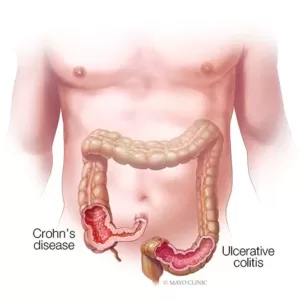




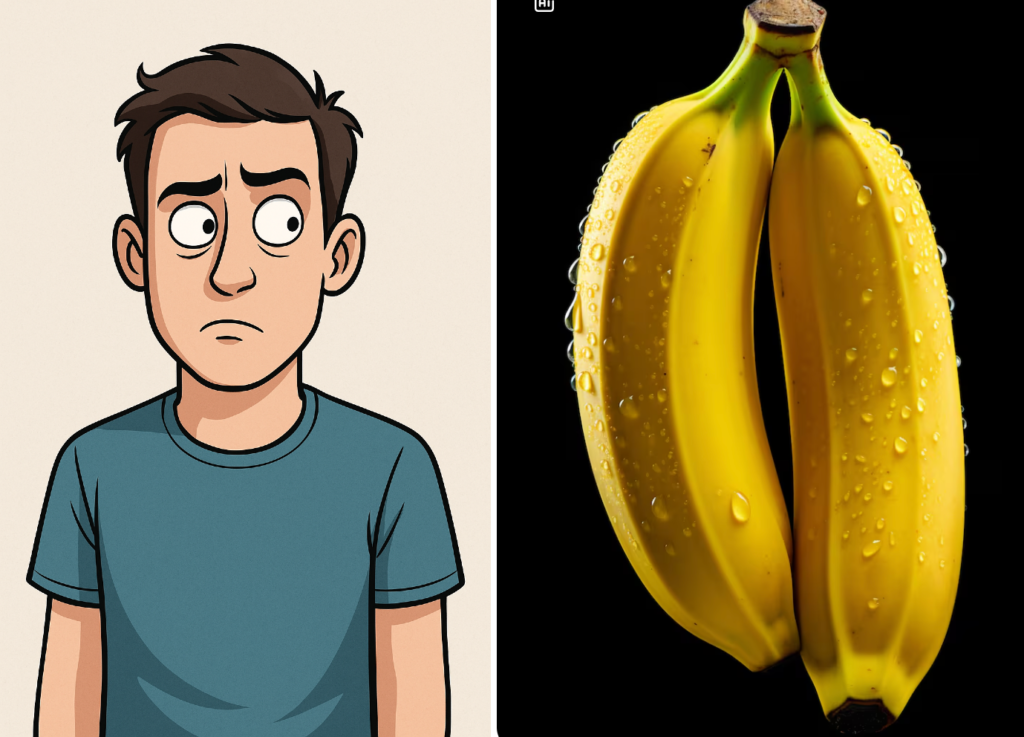
Pingback: Urinary Tract Infection May Damage Your Kidneys! - Eastside Writers
Pingback: Shilajit- It's Unknown And Untold Wonders in Your Well-Being - Eastside Writers
Pingback: 12 Reasons Avocados Is Necessary To Maintain Health
Pingback: Supplements And Herbs For Atherosclerosis | Eastside Writer
Pingback: Is Masturbation Bad For Growing Child- How To Get Rid Of This Menace - Eastside Writers
Pingback: 11 Foods Rich In Antioxidants That Demonstrate Huge Health Benefits
Pingback: Salt Shock: The Impact of Sodium Imbalance on Your Health - Eastside Writers
Pingback: Gout - The Silent Attacker - Causes, Prevention, and Remedies - Eastside Writers
Pingback: Beyond Water Retention: Uncovering the Surprising Truths of Diuretics - Eastside Writers
Pingback: Demystifying Diabetes: Know the Differences Between Type 1 and Type 2 Diabetes - Eastside Writers